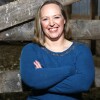If the calves my daughters showed at the county fair didn't look like they were carefully chosen for their roles, that would be the correct assumption.
The five bovines — two yearlings and three baby calves — all have stories for why they ended up with our girls. And none of the stories involve being chosen and raised for the purpose.
ADVERTISEMENT
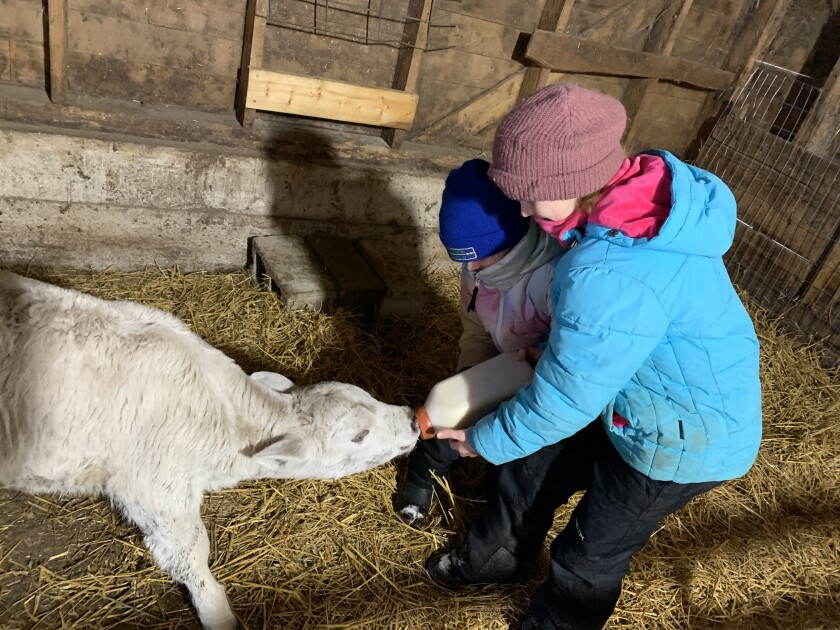
First there was Millie. The Charolais-cross yearling heifer was born in April 2022 to a cow that didn't have enough milk. Reanna would spend hours just sitting in the barn with the then-tiny calf.
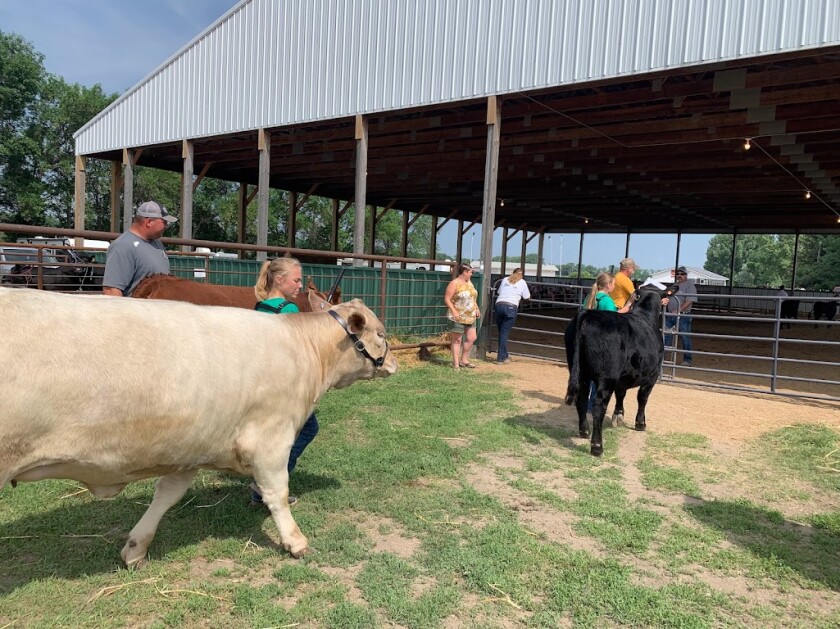
A couple of Reanna's friends came to help us unload calves at the fair. Knowing the heifer had been a bottle calf, they clearly expected a runty little thing — until the approximately 1,250 pound heifer hopped out of the trailer. Millie was one of three almost exclusively bottle-raised yearlings the girls had in the barn, and, , none of them were smaller than they should have been. Millie was coming into heat on show day and not on her best behavior, but she still took third in her class.
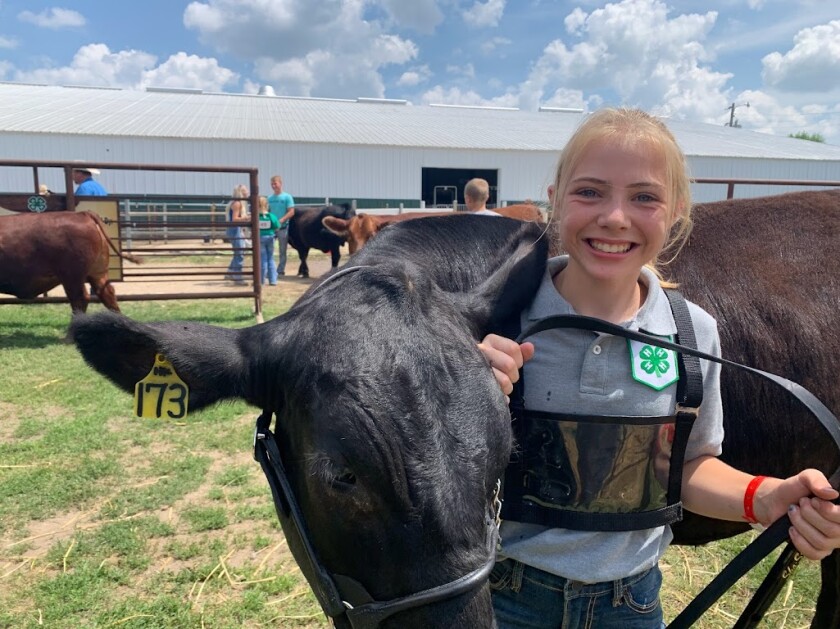
Then there was Kringle, an Angus-cross steer. Why the weird name?
We run some cattle on pasture for my dad every summer. And in 2022, one of the trucks broke down en route from south central Montana to central North Dakota and had to unload at a sale barn. Apparently, a little black calf that was awaiting sale at the barn thought my dad's cows looked like more fun, and he must have squeezed into their pen and then loaded with them in the dark of night when the new truck arrived.

When my dad, father-in-law and husband finished pairing up the cows and calves in the middle of the night, there remained the little black calf. Not knowing what else to do, they threw him in with the girls' other calves. When Kennedy asked what his name was, my dad replied, "Call him Kris Kringle, because, merry Christmas, you've got a new calf."
The trucker who delivered the load later figured out what happened and told my husband that if the calf made it to fall, we could send him $200 to cover what he paid the sale barn. When Kringle not only survived but thrived under the girls' care, my husband asked where we could send the money. We've never gotten a response, so if you happen to be the trucker reading this, we're good for that $200. Kringle behaved himself well and brought a high dollar at the premium sale, so Reanna definitely can pay up.
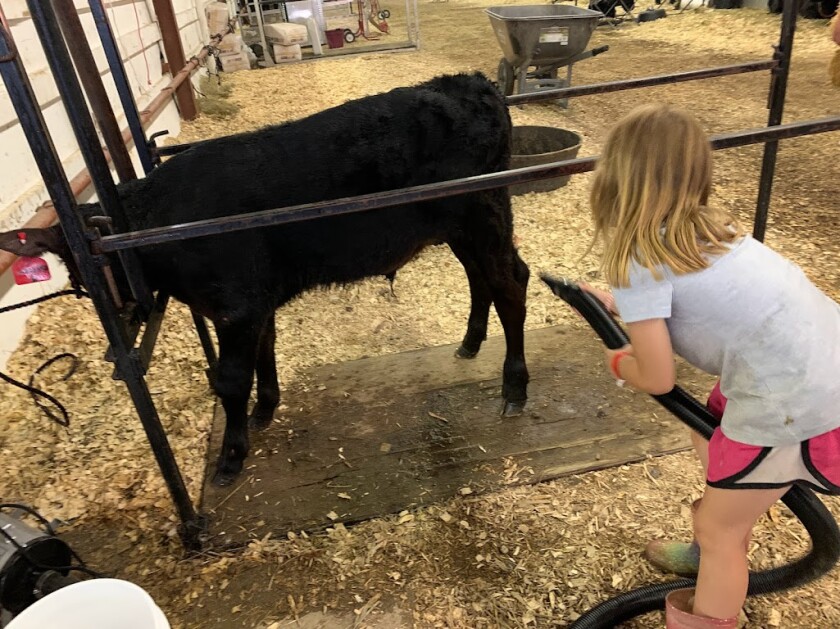
Then there were the three little calves, still on bottles: Calypso, Rusty and Darla. Calypso was a huge calf that we pulled out of a wild heifer — so wild that we quickly determined it wasn't safe to keep her around. Kennedy, 7, showed Calypso in the Cloverbud show. Rusty and Darla were victims of the brutal late winter and early spring . Rusty was born on a cold morning, and after spending hours in a warmer, his mother no longer recognized nor wanted him. He won the class (of two) of baby steers. And Darla — well, we're not exactly sure who Darla's mom was. We had multiple calves born in the wet, and Darla wouldn't drink off the cow we assumed was her mother. Another calf was ready to drink, so Darla joined the misfits in the barn. She didn't place overly well in her baby heifer class, but she has a lot of growing left to do.
ADVERTISEMENT

Reanna already has a plan for the little misfit calves — including a couple more who didn't go to the fair — she'll keep around to raise for next year's fair. She's amped up her training with Rusty, in particular, whom she noticed fits the show calf frame a little more than the other misfits.
The girls didn't bring home any banners, but what they have brought home is a solid work ethic, a bunch of knowledge and a load of confidence. I'm not concerned with whether anyone won or lost, honestly, because — — while we're in the business of raising cattle, we're a lot more concerned with raising kids.

Jenny Schlecht is Agweek's editor. She lives on a farm and ranch in Medina, North Dakota, with her husband and two daughters. She can be reached at jschlecht@agweek.com or 701-595-0425.


